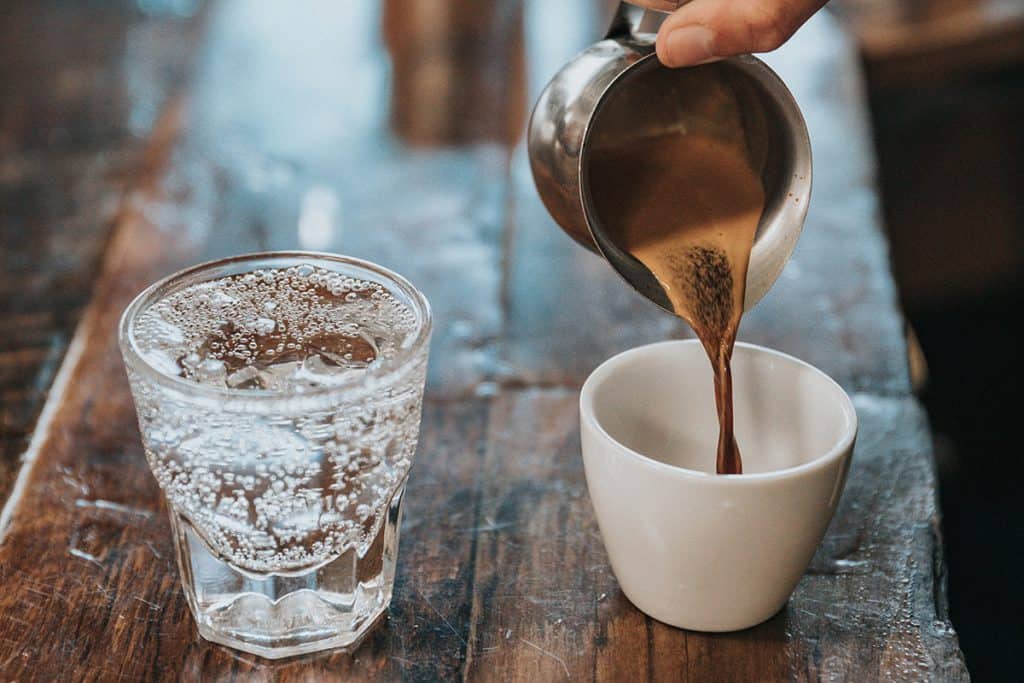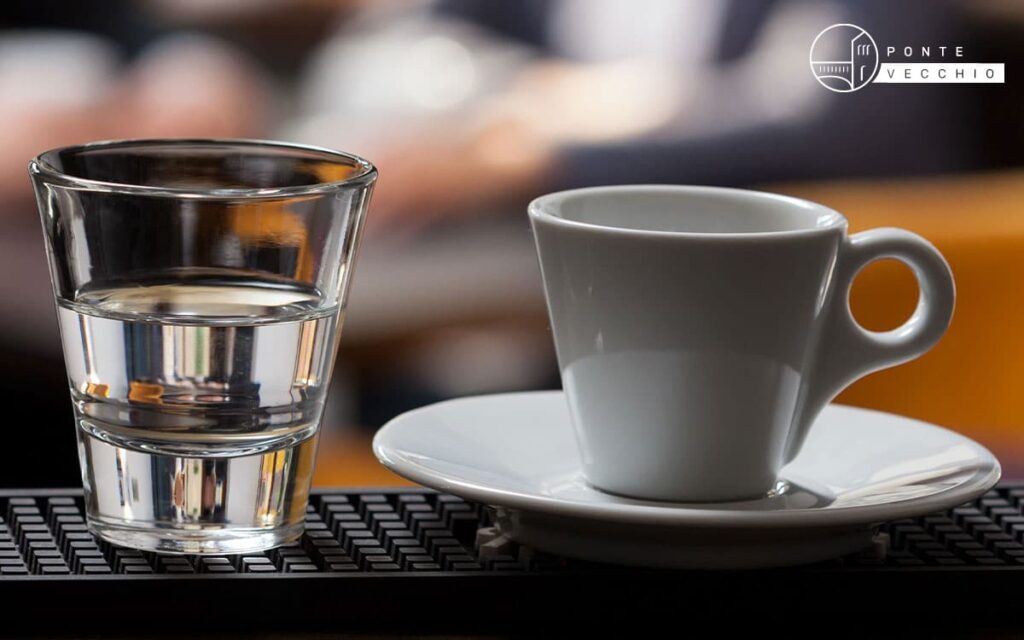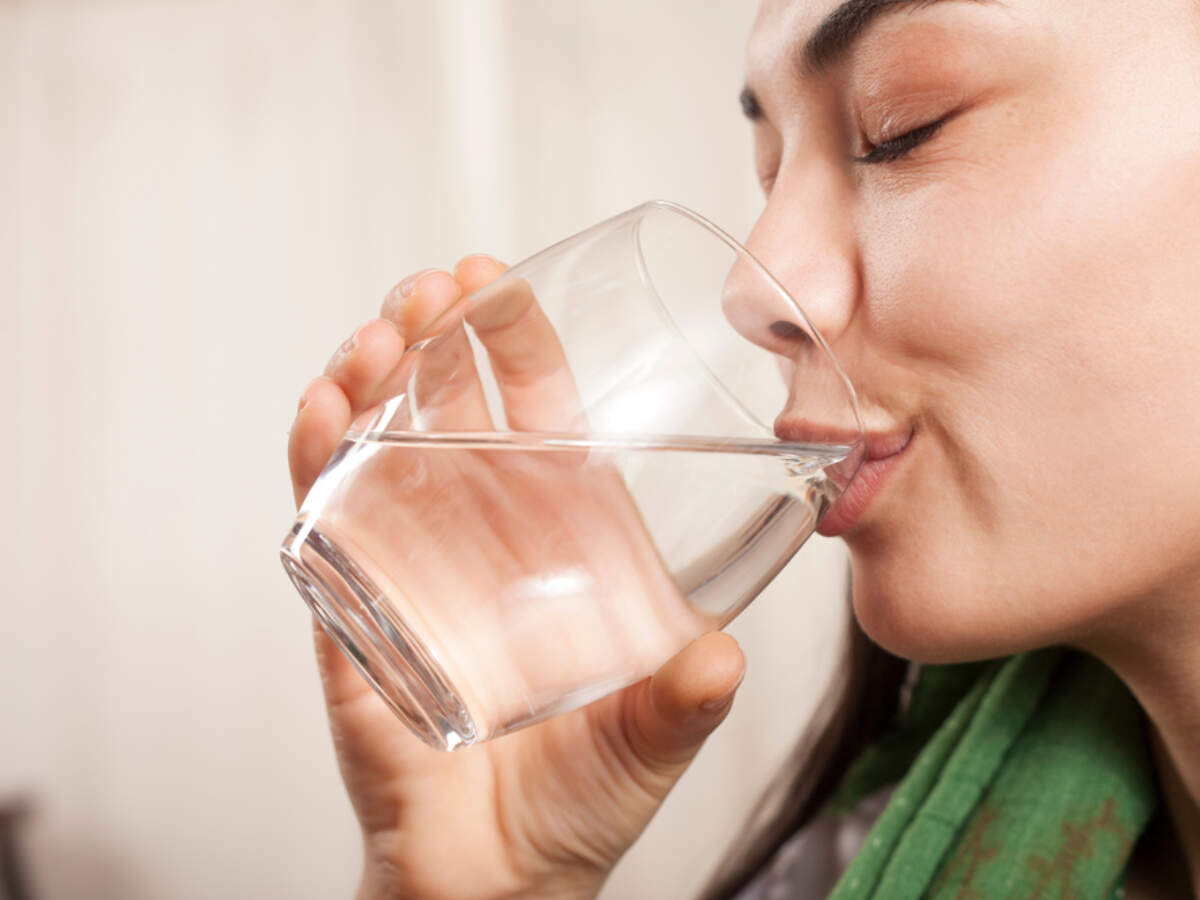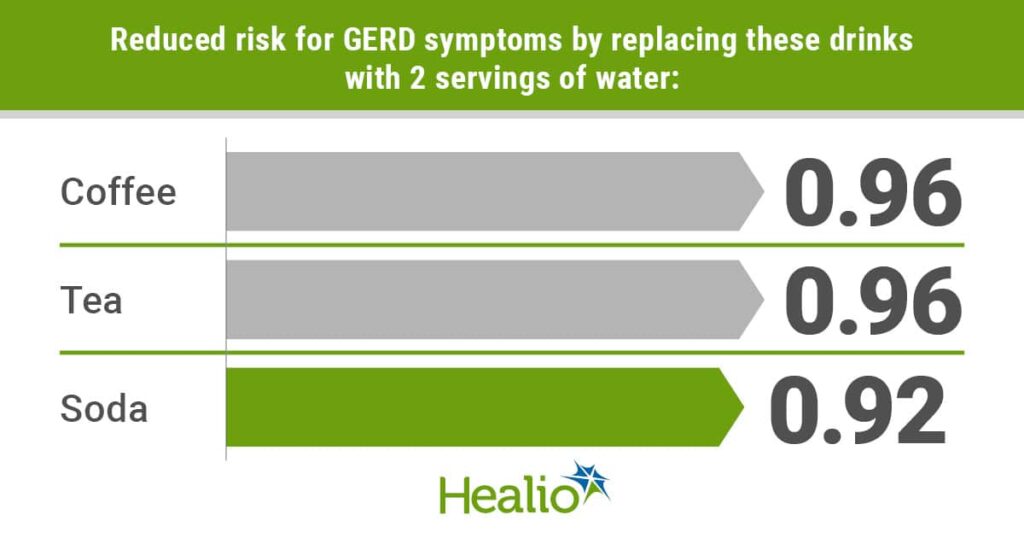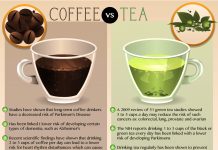Are you torn between reaching for a refreshing glass of water or a steaming cup of coffee in the morning? It’s a common dilemma for many of us. In this article, we’ll explore the age-old question: is it better to drink water instead of coffee? We’ll examine the potential benefits and drawbacks of both beverages, allowing you to make an informed decision for your daily hydration routine. So, grab a mug or a water bottle, and let’s dive right in!
Benefits of Drinking Water
Hydration
Drinking water is essential for staying hydrated. Our bodies are composed mostly of water, and it plays a crucial role in maintaining various bodily functions. When you drink enough water, it helps to ensure that your body is properly hydrated, which is important for overall health and well-being.
Improved Brain Function
One of the benefits of drinking water is improved brain function. Water helps to deliver oxygen to the brain, allowing it to function optimally. Proper hydration can enhance cognitive performance, improve concentration, and increase alertness. So, the next time you need to focus or concentrate, reach for a glass of water and hydrate your brain.
Weight Loss and Appetite Control
If you’re looking to shed a few pounds or maintain a healthy weight, water can be your best friend. Drinking water before meals can help to reduce appetite and make you feel fuller, which can lead to consuming fewer calories. Additionally, water has zero calories, making it a great alternative to sugary beverages that can contribute to weight gain.
Promotes Healthy Skin
Drinking water is often associated with healthy, glowing skin. Water helps to moisturize the skin from the inside out, keeping it hydrated and reducing the appearance of fine lines and wrinkles. Staying properly hydrated also aids in the detoxification process, flushing out toxins that can lead to blemishes and other skin issues.
Boosts Digestive System
A well-hydrated digestive system functions more efficiently. Water helps to break down food and assists in the absorption of nutrients. It also helps to prevent constipation by softening stool and promoting regular bowel movements. So, if you’re looking to support a healthy digestive system, make sure to drink an adequate amount of water throughout the day.
Enhances Physical Performance
Drinking water is crucial for optimal physical performance, whether you’re an elite athlete or a casual exerciser. Dehydration can lead to decreased endurance, reduced strength, and impaired coordination. By staying properly hydrated, you can maximize your physical capabilities and perform at your best.
Detoxification
Water plays a vital role in the body’s natural detoxification process. It helps to flush out waste products and toxins, keeping your organs and systems functioning properly. By drinking enough water, you support your body’s ability to eliminate harmful substances and maintain overall health.
Benefits of Drinking Coffee
Increased Energy Levels
Many people turn to coffee for a quick pick-me-up and an energy boost. Coffee contains caffeine, a stimulant that can help increase alertness and combat fatigue. By regularly consuming coffee in moderation, you may experience a boost in energy levels to help you power through the day.
Improved Focus and Alertness
Caffeine, the primary active compound in coffee, has been shown to enhance focus and alertness. It binds to adenosine receptors in the brain, preventing adenosine from binding and causing drowsiness. This, in turn, promotes wakefulness and mental clarity, helping you stay focused and attentive.
Enhanced Physical Performance
Coffee has been recognized for its potential to improve physical performance. The caffeine in coffee has ergogenic effects, meaning it can enhance endurance, reduce perceived exertion, and increase muscle strength. It stimulates the central nervous system, enabling you to push harder during workouts or physical activities.
Reduced Risk of Certain Diseases
Coffee consumption has been associated with a reduced risk of some diseases. Regular coffee drinkers have been found to have a lower risk of developing conditions such as type 2 diabetes, Parkinson’s disease, liver cirrhosis, and certain types of cancer. However, it’s important to note that individual results may vary, and more research is needed in this area.
Antioxidant Properties
Coffee is a rich source of antioxidants, which play a crucial role in combating oxidative stress and reducing inflammation in the body. Antioxidants help protect cells from damage caused by free radicals, which can contribute to the development of chronic diseases. Including coffee in your diet may provide a significant antioxidant boost.
Elevated Mood
For many people, a cup of coffee is synonymous with a mood boost. Caffeine stimulates the release of dopamine, a neurotransmitter associated with pleasure and reward. This can enhance mood and promote a sense of well-being. However, it’s important to consume coffee in moderation and avoid excessive consumption, as it may lead to negative side effects.
Potential Drawbacks of Drinking Coffee
Caffeine Dependency
Regular consumption of coffee can lead to caffeine dependency. The stimulating effects of caffeine can result in cravings and withdrawal symptoms when consumption is reduced or stopped. It’s important to be mindful of your caffeine intake and consider gradually reducing it if you feel dependent.
Insomnia
Coffee, especially when consumed later in the day, can interfere with sleep. The stimulating effects of caffeine can make it difficult to fall asleep and may lead to disrupted sleep patterns. If you’re sensitive to caffeine or have trouble sleeping, it’s best to limit or avoid coffee consumption in the evening.
Digestive Issues
Coffee is known to stimulate the production of stomach acid, which can cause digestive issues for some people. It may lead to acid reflux, heartburn, or an upset stomach. If you experience digestive discomfort after consuming coffee, you may want to try reducing your intake or switching to a milder blend.
Increased Heart Rate and Blood Pressure
Caffeine consumption can temporarily raise heart rate and blood pressure. This may pose risks, especially for individuals with pre-existing cardiovascular conditions or those sensitive to caffeine. It’s advisable to consult with a healthcare professional if you have concerns about the potential impact of coffee on your heart health.
Stained Teeth
One of the aesthetic drawbacks of coffee consumption is its potential to stain teeth. Coffee contains compounds that can cause tooth discoloration over time. Regular brushing and dental care can help mitigate the effects, but it’s important to be aware of this potential drawback.
Addictive Nature
Coffee, like other caffeinated beverages, can be addictive. Regular consumption can lead to tolerance, meaning you may need to consume more caffeine to achieve the same effects. This can contribute to an ongoing cycle of dependence. It’s important to consume coffee in moderation and be mindful of your caffeine intake.
Negative Impact on Bone Health
Some research suggests that excessive coffee consumption may have a negative impact on bone health. High caffeine intake has been associated with reduced calcium absorption and increased calcium excretion. If you’re concerned about your bone health, it may be wise to moderate your coffee consumption and ensure adequate calcium intake from other sources.
Potential Drawbacks of Drinking Excessive Water
Water Intoxication
While rare, drinking excessive amounts of water without proper electrolyte balance can lead to a condition called water intoxication or hyponatremia. This occurs when the concentration of sodium in the blood becomes too diluted. It’s important to maintain a balanced approach to water consumption and replenish electrolytes if engaging in prolonged physical activity.
Electrolyte Imbalance
Overhydration can disrupt the balance of electrolytes in the body. Electrolytes, such as sodium and potassium, are essential for nerve and muscle function. Drinking excessive amounts of water without replenishing electrolytes can lead to imbalances that may cause muscle cramps, weakness, and even cardiac issues. It’s important to strike a balance and consider electrolyte supplementation if necessary.
Frequent Urination
Drinking excessive water can lead to frequent urination. While staying hydrated is important, excessive urination may disrupt your daily activities and potentially affect sleep patterns. It’s essential to find a balance between adequate hydration and avoiding excessive water intake for your individual needs.
Reduced Mineral Absorption
Drinking excessive amounts of water can also potentially interfere with the absorption of minerals from food. Overhydration may dilute the concentration of minerals in the digestive system, making it more difficult for the body to absorb them efficiently. It’s crucial to maintain a balanced approach to water intake to ensure proper nutrient absorption.
Stomach Disturbances
In some cases, excessive water consumption can lead to stomach disturbances such as bloating or discomfort. Overloading the stomach with excessive water can cause temporary stretching and discomfort. Finding the right balance for your individual needs is key to avoiding potential stomach issues.
Water vs Coffee for Hydration
Water as the Best Hydrating Beverage
When it comes to hydration, water is the gold standard. It’s pure, calorie-free, and readily available. Water is quickly absorbed by the body, allowing for efficient rehydration. Whether you’re exercising or simply going about your daily activities, drinking an adequate amount of water is essential for maintaining proper hydration.
Dehydrating Effects of Caffeine
While coffee can contribute to your overall fluid intake, it does have some diuretic properties due to its caffeine content. Diuretics promote increased urine production, which can lead to fluid loss. However, the diuretic effects of caffeine are mild, and the water content in coffee still contributes to your daily hydration needs.
Balancing Coffee Consumption with Water Intake
If you’re a coffee lover, there’s no need to give it up for the sake of hydration. It’s important to balance your coffee consumption with adequate water intake. For every cup of coffee you drink, consider having a glass of water to offset any potential fluid loss. By maintaining a balance between water and coffee, you can enjoy the benefits of both.
Impact of Water on Brain Function
Role of Water in Cognitive Performance
Water plays a vital role in cognitive performance. Dehydration can negatively impact various aspects of brain function, including attention, memory, and mood. By staying properly hydrated, you support optimal brain function and enhance cognitive performance.
Cognitive Benefits of Optimal Hydration
When you’re well-hydrated, your brain cells are better able to communicate with each other. This improves information processing, cognitive flexibility, and overall mental performance. Proper hydration allows for efficient neurotransmitter production and transport, leading to improved cognitive function.
Effects of Dehydration on Brain Function
Dehydration can have significant effects on brain function. Even mild dehydration can result in decreased cognitive performance, impaired concentration, and reduced mental clarity. It can also lead to fatigue, headaches, and mood changes. By prioritizing hydration, you can help ensure that your brain is functioning optimally.
Effect on Weight Loss and Appetite Control
Water as a Vital Component of Weight Loss
Water is a vital component of any weight loss journey. It has zero calories, yet it can help to reduce appetite when consumed before meals. Drinking water can make you feel fuller, leading to a reduced calorie intake. Additionally, staying hydrated supports optimal metabolism, aiding in weight loss efforts.
Coffee’s Potential Impact on Metabolism
Coffee has been associated with a potential increase in metabolism. Caffeine stimulates the central nervous system, which can lead to a temporary boost in metabolic rate. However, the effect may be modest, and individual responses can vary. It’s important to note that relying solely on coffee for weight loss is not recommended.
Appetite Suppressant Properties of Coffee
Coffee, particularly black coffee, has been shown to have appetite suppressant properties. It can help to temporarily reduce hunger and cravings, making it an ally for those trying to control their appetite. However, it’s worth noting that excessive coffee consumption or adding high-calorie additives can negate these potential benefits.
Impact on Physical Performance
Water as Essential for Exercise
When it comes to physical performance, water is essential. Proper hydration during exercise helps to regulate body temperature, lubricate joints, and deliver oxygen and nutrients to muscles. It also aids in the removal of waste products from the body. Staying hydrated allows you to perform at your best and prevent dehydration-related performance declines.
Ergogenic Effects of Coffee
Coffee has long been recognized for its potential to enhance physical performance. The caffeine in coffee stimulates the central nervous system, leading to increased endurance and improved muscular contractions. It can help you push through fatigue and exert yourself at a higher level during workouts or physical activities.
Balancing Hydration with Coffee Consumption during Exercise
While coffee can contribute to overall fluid intake during exercise, it’s important to ensure that you’re also consuming enough water. Balancing coffee consumption with water intake helps to counteract the diuretic effects of caffeine and maintain proper hydration. It’s crucial to listen to your body’s thirst cues and replenish fluids accordingly.
Effects on Skin Health
Hydration for Healthy and Radiant Skin
Drinking an adequate amount of water is essential for maintaining healthy and radiant skin. Proper hydration helps to keep the skin moisturized from the inside out, improving its elasticity and suppleness. It can also help to reduce the appearance of fine lines and wrinkles, giving your skin a more youthful glow.
Potential Negative Effects of Coffee on Skin
While coffee can offer some benefits to the skin, excessive consumption may have negative effects. The diuretic properties of caffeine can lead to increased urine production and potential dehydration, which can result in dry and dull skin. It’s best to balance your coffee intake with adequate water consumption and moisturize your skin externally as well.
Maintaining Skin Health through Combined Water and Coffee Intake
To maintain optimal skin health, it’s beneficial to combine the intake of both water and coffee. Water helps to hydrate the skin, while coffee can provide some antioxidant benefits. By finding a balance between the two, you can support healthy skin from both the inside and the outside.
Conclusion
When it comes to the debate of water vs coffee, it’s important to consider individual preferences and factors such as health and lifestyle. Both water and coffee offer their unique benefits and potential drawbacks. For hydration purposes, water remains the best choice. It is calorie-free, readily available, and vital for overall health.
Coffee, on the other hand, can provide an energy boost, enhance focus, and potentially improve physical performance. It also offers antioxidant properties and a mood-elevating effect. However, it’s important to consume coffee in moderation and be mindful of its potential negative effects, such as caffeine dependency and disturbances to sleep and digestion.
Ultimately, the key lies in balance. Finding the right balance between water and coffee consumption is essential. For optimal hydration, prioritize water intake and supplement it with coffee if desired. Remember to listen to your body’s cues, consider personal health factors, and make choices that align with your overall well-being.



